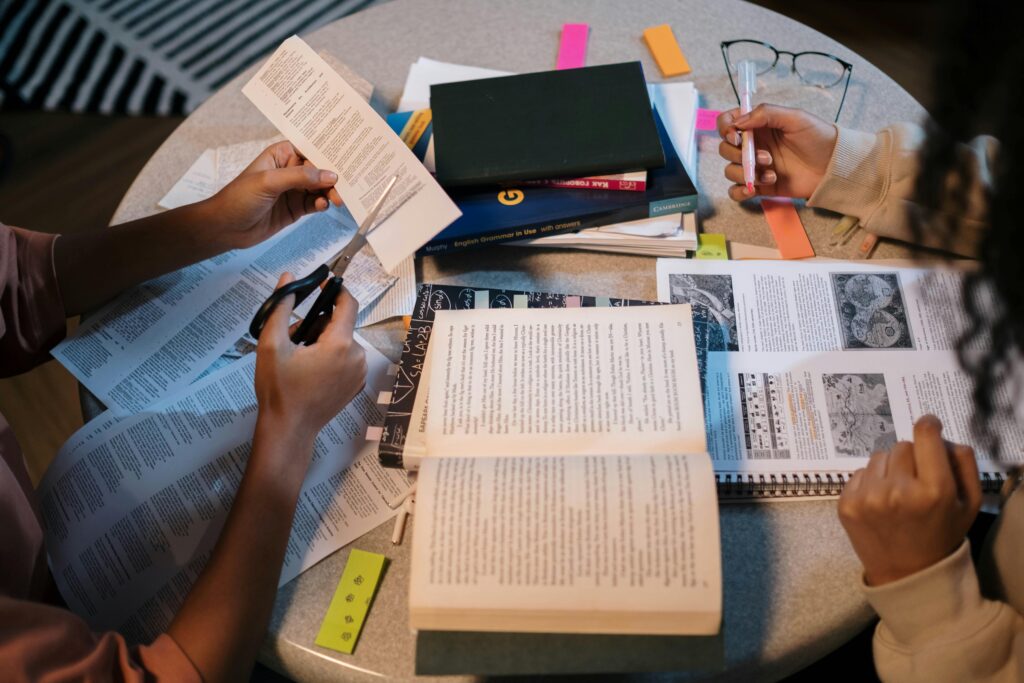GCSE Revision 2026: A Real Parent’s Guide to Surviving Exam Season
It feels like we’ve just blinked, and suddenly it’s revision season.
E’s GCSEs are starting to feel real now — not just dates on the calendar, but hours of study building quietly in the background. His first full exam year, and neither of us really knows what to expect yet.
I’ve been reading, asking, and collecting advice wherever I can — from teachers, BBC Bitesize, and other parents already in the thick of it. There’s so much out there that I decided to put everything in one place. A post I can refer back to as we go, and maybe something that’ll help anyone else figuring out how to support their teen through GCSE revision for the first time.

Tip 1: Get Organised Early — Without Overcomplicating It
The advice that comes up everywhere for GCSE revision is start early, but what that really means is get organised early. E’s school has given dates for mocks and a general outline for summer exams, so we’ve printed everything and kept it simple. No colour-coded spreadsheets, just clarity.
What’s helped so far:
- A printed calendar with exam dates and subjects.
- One shared folder for past papers and mock results.
- A few clear storage boxes so every subject has its own space.
- A wall planner in his room for quick reference.
The BBC Bitesize revision planner is a good base if you’re starting from scratch. We’ve added the dates manually, and it’s made everything feel more manageable — both for him and for me.
Tip 2: Find Your Teen’s Learning Style
Every child learns differently, and working out what actually sticks can save everyone time (and arguments). Some kids click with visuals — colour-coded notes, mind maps, diagrams. Others remember more by saying things out loud or teaching it back. Some do best rewriting and condensing notes into cue cards. And a few need movement — short bursts, then a walk or stretch before coming back to it.
If you’re not sure what fits, try BBC Bitesize’s learning style quiz or experiment with a few approaches for a week.
Rough guide:
- Visual learners: mind maps, colour-coding, cue cards, drawing diagrams.
- Auditory learners: record notes, use podcasts, and teach it back out loud.
- Reading/writing learners: rewrite information, summarise chapters, make lists.
- Kinaesthetic learners: move while learning, use hands-on resources, and revise in short bursts.
It’s worth giving them space to work it out on their own — it sticks better when it feels like their choice.
Tip 3: Use Mock Exams as a Map, Not a Verdict
Mocks can feel brutal — all the effort, then those grades landing like a reality check. But they’re the best roadmap you’ll get before the real thing.
After E’s mock results come in, we will go through each paper slowly, looking for themes. If it’s long answers, we’ll focus on structure and keywords. Sometimes it’s nerves, sometimes it’s misreading a question. Whatever it is, mocks show the “why,” not just the “what.”
Try this approach:
- Go through one paper at a time, without stress.
- Highlight what went wrong: timing, missed keywords, unanswered questions.
- Log each weak area somewhere visible.
- Use Save My Exams and Physics & Maths Tutor for targeted practice.
Mocks aren’t about the score; they’re about spotting what’s lacking.
Tip 4: Build a Routine That Actually Works
The most common mistake? Over-planning. E’s schedule is loose on purpose: two short sessions after school, dinner, then one more if he’s up for it.
Guidelines that work for us:
- Keep weekdays short — quality over hours.
- Give one full evening off each week.
- Mix subjects so no single day feels heavy.
- Leave space for last-minute school topics.
If your teen likes tech, try Forest (a focus timer that “grows” trees) or Trello for visual tracking. Otherwise, pen and paper do the job perfectly.
Tip 5: Create a Calm Study Space
He’s chosen to revise in his room — fine by me, as long as it stays functional. No candles, no Pinterest desk setups, just a decent lamp and a chair that won’t ruin his back.
Worth checking:
- Lighting is bright but not harsh.
- Headphones fit comfortably if they are used to music.
- Drinks and snacks within reach (so fewer “breaks”).
- Phone on charge, but not in their hand.
It’s about reducing friction — if the setup works, the study will too.

Tip 6: Keep Motivation Realistic
Motivation dips. That’s normal. There are nights when he’s full of focus and others where the motivation’s missing entirely. I’ve learned not to push; I just check in and adjust expectations.
What’s helping:
- Praising consistency, not results.
- Using visible progress charts (tick off topics).
- Letting him choose rewards — takeaway Fridays, one night completely off.
- Sharing short, useful clips from @bbcbitesize or @revisionwithjess.
And on tough days, changing scenery helps — moving GCSE revision downstairs for an hour, or even walking the dog while reciting science facts out loud.
Tip 7: Keep an Eye on Mental Health
Revision is pressure — for them and for you. Tiredness hits hard, especially when exams overlap with birthdays, clubs, or end-of-year chaos.
Daily reset habits:
- Decent breakfast.
- Movement: walk, stretch, something away from the screen.
- Regular bedtime (and no all-nighters).
- One no-study evening a week.
If stress builds:
- Talk casually — car chats work better than interrogations.
- Watch for headaches, tears, or sleep issues.
- Use trusted resources like YoungMinds, Mind, or Anna Freud Centre.
- The BBC Bitesize Wellbeing section is short and easy to digest.
It’s fine to pause revision for mental health. A rested brain remembers more anyway.
Tip 8: Stick to Trusted Resources
It’s tempting to believe every TikTok study hack for GCSE revision, but the basics still work best.
Worth bookmarking:
- BBC Bitesize GCSE – short, verified notes.
- Seneca Learning – adaptive practice.
- Save My Exams – organised by exam board.
- Physics & Maths Tutor – past papers.
- Quizlet – flashcards and tests.
If it’s teacher-approved or school-endorsed, use it. Everything else can wait until exams are over.
Tip 9: Keep the House (and Yourself) Steady
The whole house feels it. Siblings, pets, even dinner timings. We’ve made small tweaks: earlier dinners on exam days, quieter evenings, no guilt for taking breaks.
What’s working:
- One calm check-in each day (“All good?” is enough).
- No revision talk at dinner.
- Snacks and supplies stocked up before meltdown hour.
- A few mum-to-mum WhatsApp chats that stay helpful, not competitive.
I’ve learned that if I’m anxious, he feels it. So I keep my tone steady and make tea for me. Lots of it.
Tip 10: Avoid Last-Minute Cramming
This is the part we’re still learning — how to stay calm when exams are days away. His birthday falls right in the middle of the season, so balance matters even more.
Last-week reminders:
- Revise summaries, not new topics.
- Stick to usual methods — no new apps or tricks.
- Prep supplies early:
- 2 black pens
- clear pencil case
- water bottle
- timetable printout
- Focus on rest, meals, and consistency.
- End each day early — tired brains don’t retain.
The aim isn’t perfection; it’s to walk into each exam steady, not shattered.
Final Thought
GCSE revision is new territory for both of us, and I’m realising that “helping” often means stepping back, listening, and keeping the house calm.
We’ll figure it out together — one planner, one mug of tea, and one subject at a time.



